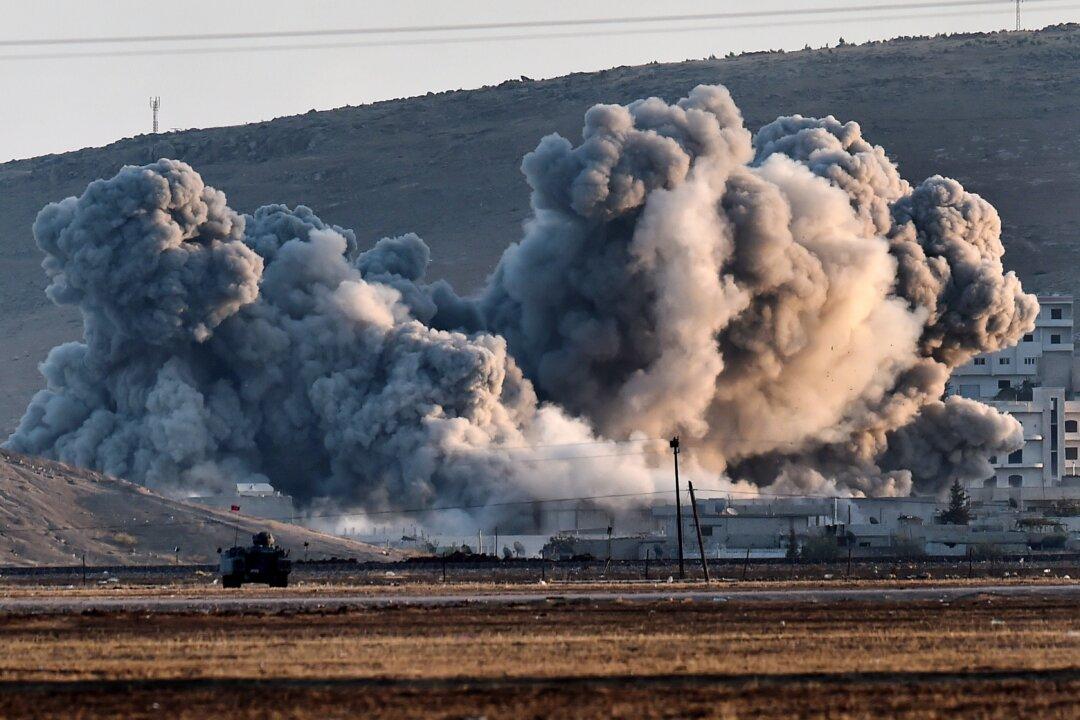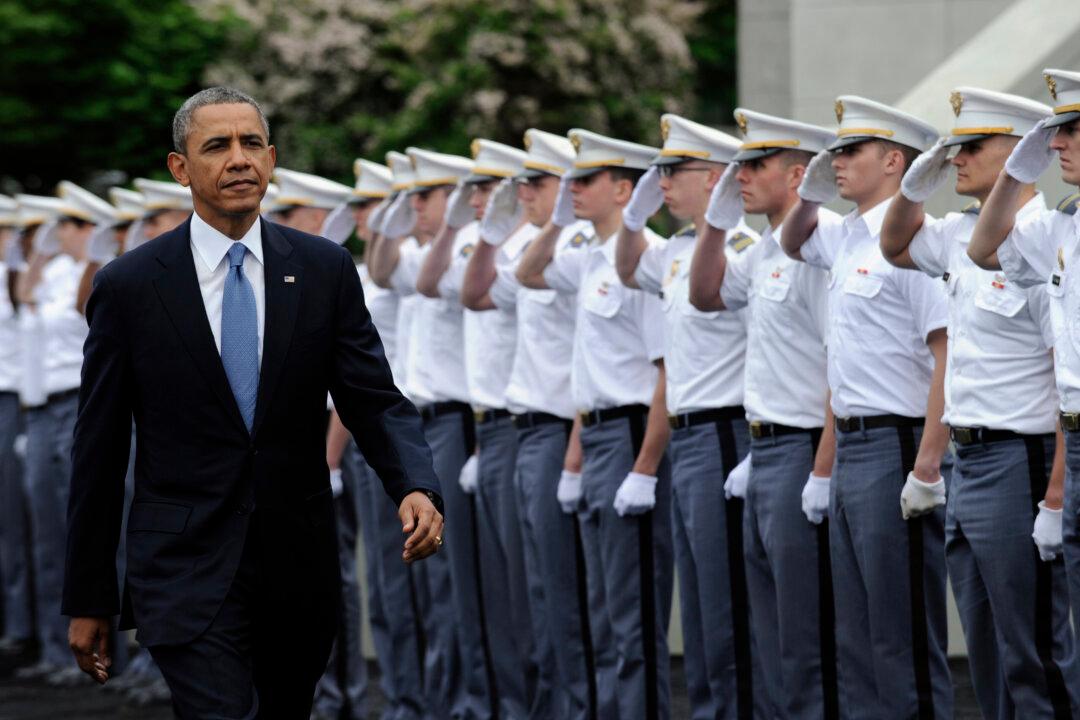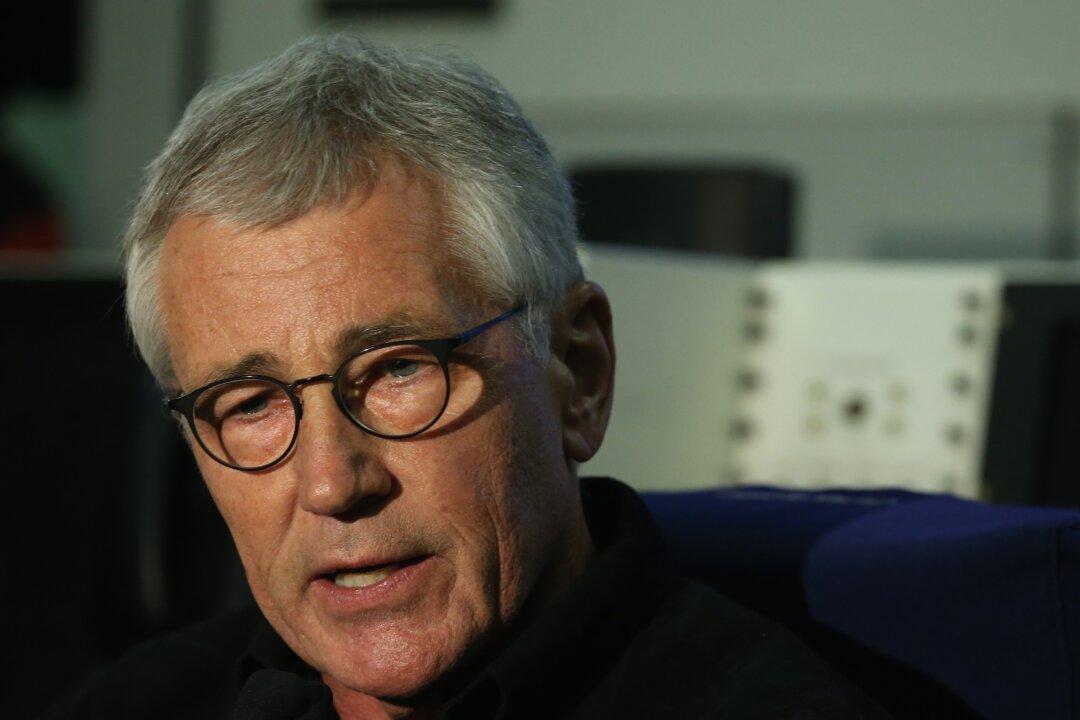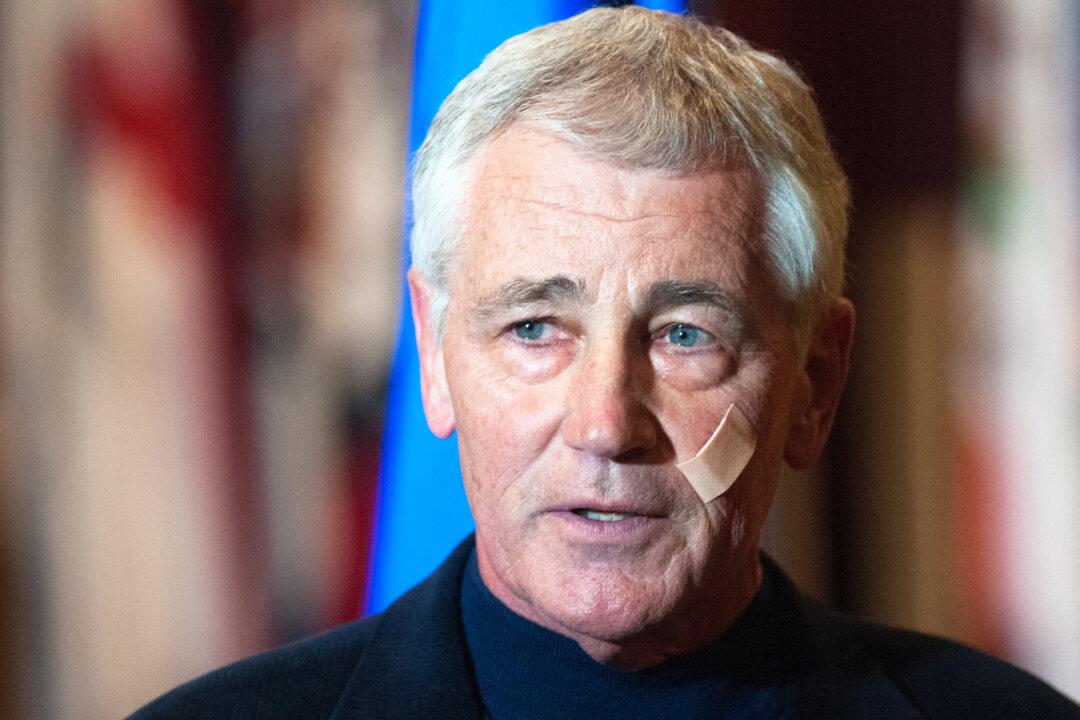WASHINGTON—A barrage of U.S.-led airstrikes in and around the Syrian city of Kobani, including 39 over the past two days, has killed hundreds of Islamic State fighters and has stiffened the city’s Kurdish defenders, the Pentagon’s spokesman said Wednesday.
Offering an unusually detailed description of the fighting, Rear Adm. John Kirby told reporters that all but “hundreds” of civilians have evacuated the city and that increasing numbers of Islamic State group fighters are flowing in.
“One of the reasons why you’re seeing more strikes there is because there is more ISIL there,” Kirby said, using a common acronym for the extremist group. Their greater numbers are providing more targets for U.S. bombs, he said.
“It’s hard to give an exact number, but we believe that we have killed several hundred ISIL fighters,” he added. He did not specify a time period; airstrikes there began Oct. 1, according to U.S. Central Command, which announced Wednesday that it had launched 18 airstrikes near Kobani over the previous 24 hours, following a barrage of 21 strikes there the previous 24 hours.
[aolvideo src=“http://pshared.5min.com/Scripts/PlayerSeed.js?sid=1759&width=480&height=300&playList=518464640&responsive=false”]
Kirby said Kobani remains in danger of falling to the Islamic State fighters, who are intently focused on the city.
“These guys want to grab ground. They want territory,” he said. “Kobani is a territory they want.”
Central Command said the latest airstrikes by American bombers and fighter jets destroyed multiple Islamic State fighting positions in the Kobani area. It said the strikes also hit 16 buildings there occupied by the militants.
John Allen, the retired Marine general who is President Barack Obama’s coordinator of the coalition campaign against the Islamic State group, described the intensification of U.S. airstrikes in Kobani as a humanitarian move.
“There was a need for additional fire support to go in to try to relieve the defenders” and to buy time and space for them to get better organized, Allen said.
Activists and officials in the region said the airstrikes, which have been joined in some cases by coalition partners including Saudi Arabia, have bolstered the Kurdish militiamen fighting pitched battles in the city and making small advances.
Kirby said the combined effects of U.S. and coalition airstrikes in Kobani and other areas in Syria over the past three weeks have taken a toll on the Islamic State militants. But he added that no one should expect decisive results there or elsewhere in Syria anytime soon.
“We all need to be in this for a matter of years,” he said, even as airstrikes make it harder for the Islamic State group to resupply its fighters and reconstitute important resources, such as mobile oil refineries, that have been targeted.
The Paris-based International Energy agency said in a report that U.S.-led airstrikes have significantly weakened the Islamic State’s ability to produce, operate oil fields and smuggle oil — a major source of income for the militants.
Kirby attributed this week’s increased U.S. airstrikes in Kobani to several factors: an influx of Islamic State fighters; a near-total civilian evacuation of Kobani that makes it less risky to drop bombs in the area; and weather-related limitations on airstrikes in Iraq. He said weather issues in central Iraq have limited flights of surveillance and reconnaissance aircraft, whose intelligence-collection efforts are crucial to identifying targets for bombers and fighter aircraft.
Central Command said U.S. warplanes launched five airstrikes in Iraq overnight Wednesday but only one the day before.
From The Associated Press. AP National Security writer Lara Jakes contributed to this report.




